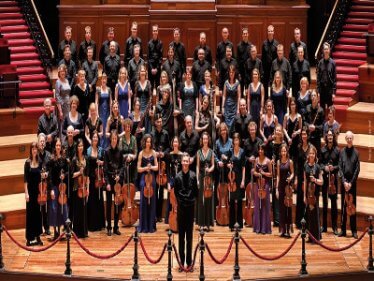Messiah - Schedule, Program & Tickets
Messiah
Oratorio in three parts
Music by Georg Friedrich Händel
Libretto by Charles Jennens
Concert performance in English
Georg Friedrich Handel is one of the few composers in history whose music has been performed continuously since his death. However, this lasting popularity is less rooted in his operas, which were largely rediscovered in the 20th century, but mainly in his choirs. At the popular trade festivals in the 19th century, pieces with 300 participants in the choir and 250 musicians in the orchestra were performed. The most famous of these choirs, the well-known "Hallelujah", comes from Handel's Messiah oratorio and has been widely re-used in the media. In the 1740 season, Handel tried again to arouse the interest of the London public in Italian opera, but his efforts were in vain. The enthusiasm on the Thames was already in the genre of the oratorio, in which Handel 1739 celebrated his first success with his Saul. The libretto was written by the wealthy landowner and Handel admirer Charles Jennens, who in 1741 sent him another libretto called Messiah without being asked. The work, structured like a theological pamphlet, does not tell a chronological story, and the title figure does not appear either. Rather, the devout Jennens was keen to show the juxtaposition of the Old and New Testaments that Jesus is indeed the Messiah in the sense of prophetic predictions. Handel, who had just survived a health crisis, felt personally moved by Jennen's text that he should have composed the oratorio in just 24 days. In the abstract sequence of scenes, the struggle for faith becomes the central theme, and Handel finds overwhelming sounds for human fears and guilt feelings, for hope and finally for the prophesied salvation. The premiere during a concert tour in Dublin, Ireland was successfully recorded, but it also generated heated controversy over whether a piece with biblical texts could even be shown on a theater stage with a secular choir. Handel's music kept the upper hand; the never-ending triumphal procession of his oratorio has continued unabated since the 1750s.
Subject to changes.
Music by Georg Friedrich Händel
Libretto by Charles Jennens
Concert performance in English
Georg Friedrich Handel is one of the few composers in history whose music has been performed continuously since his death. However, this lasting popularity is less rooted in his operas, which were largely rediscovered in the 20th century, but mainly in his choirs. At the popular trade festivals in the 19th century, pieces with 300 participants in the choir and 250 musicians in the orchestra were performed. The most famous of these choirs, the well-known "Hallelujah", comes from Handel's Messiah oratorio and has been widely re-used in the media. In the 1740 season, Handel tried again to arouse the interest of the London public in Italian opera, but his efforts were in vain. The enthusiasm on the Thames was already in the genre of the oratorio, in which Handel 1739 celebrated his first success with his Saul. The libretto was written by the wealthy landowner and Handel admirer Charles Jennens, who in 1741 sent him another libretto called Messiah without being asked. The work, structured like a theological pamphlet, does not tell a chronological story, and the title figure does not appear either. Rather, the devout Jennens was keen to show the juxtaposition of the Old and New Testaments that Jesus is indeed the Messiah in the sense of prophetic predictions. Handel, who had just survived a health crisis, felt personally moved by Jennen's text that he should have composed the oratorio in just 24 days. In the abstract sequence of scenes, the struggle for faith becomes the central theme, and Handel finds overwhelming sounds for human fears and guilt feelings, for hope and finally for the prophesied salvation. The premiere during a concert tour in Dublin, Ireland was successfully recorded, but it also generated heated controversy over whether a piece with biblical texts could even be shown on a theater stage with a secular choir. Handel's music kept the upper hand; the never-ending triumphal procession of his oratorio has continued unabated since the 1750s.
Subject to changes.
There are no products matching the selection.







